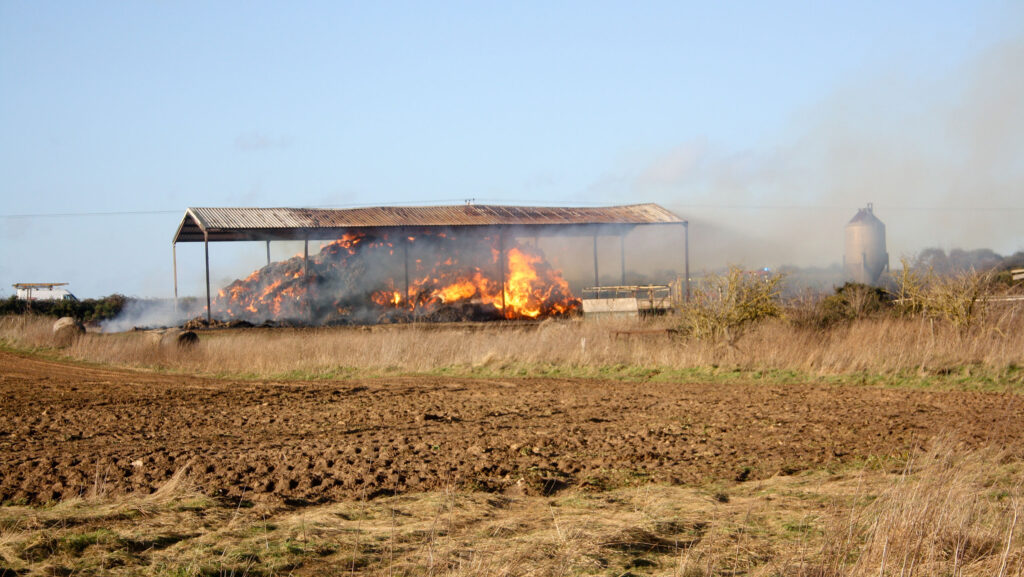Farm fire costs hit £110m in 2023
 © AdobeStock
© AdobeStock New data from NFU Mutual reveals that the cost of farm fires surged by 37% in 2023, reaching an estimated £110.3m, prompting calls for better fire prevention strategies across the sector.
Despite a 15% drop in fire claims involving crops, buildings, and equipment, the financial toll of farm fires rose significantly from £80.4m in 2022.
NFU Mutual attributes the rise to larger fires and increased costs for replacement equipment, materials, and labour.
See also: How can I reduce risk of harvest farm fire?
Electrical faults, lightning strikes, and arson were the main causes of farm fires in 2023, with agricultural vehicle fires accounting for £37.7m.
In particular, the cost of tractor fires reached £20.4m, though the cost of combine harvester fires fell to £7.4m from £11.1m in 2022, due in part to lower summer temperatures.
Hannah Binns, NFU Mutual rural affairs specialist, highlighted the severe consequences of farm fires.
“A major fire is one of the most devastating things that can happen on a farm. It can disrupt farm businesses for years,” she said.
Ms Binns emphasised the importance of having a comprehensive fire prevention plan, covering building safety, machinery maintenance, and evacuation procedures.
The data also revealed regional variations, with the North West seeing a dramatic increase in fire costs, up 549% to £28.8m, while the East and South East saw reductions in fire-related losses.
James Charlesworth, a farmer from Crewe, Cheshire, experienced a devastating straw barn fire in July 2024.
He was alerted to the blaze in the middle of the night by the farm’s CCTV system, which triggered an alarm due to fire damage to the electrical wiring.
He said: “Fire engines were on scene in around 10 minutes – but by that time the barn was completely ablaze. It was immediately clear that nothing could be done to save the barn or the JCB Loadall and John Deere tractor parked in it.”
The fire was so intense that fire crews remained on site for three days, dampening down hotspots.
“The fire spread incredibly fast. The straw was from the previous year’s harvest and was tinder dry. The likely cause was an electrical fault in a control panel – but we couldn’t be sure,” Mr Charlesworth said.
NFU Mutual also advises farmers to ensure regular maintenance of machinery and to fit fire suppression systems, especially on vulnerable equipment such as combine harvesters, which can significantly reduce the risk of catastrophic fires.
The insurer also encourages farmers to invest in business interruption insurance to help maintain income after a fire.
How can I improve fire safety?
- Have a Fire Plan: Ensure everyone on-site knows evacuation procedures. Prioritise safe evacuation, especially for vulnerable individuals.
- Maintain Electrical Safety: Electrical faults are a major fire hazard. Always hire a qualified electrician for inspections and repairs and avoid DIY fixes.
- Install Fire Suppression Systems: These are crucial for detecting and containing fires, especially in high-risk areas like biomass boilers or machinery.
- Practise Good Housekeeping: Store materials and machinery properly, eliminate dust, and keep escape routes clear to reduce fire risks and trip hazards.
- Control Hot Work: Sparks from welding, cutting, or grinding can ignite fires. Always ensure hot work is done in safe, clear areas, away from combustibles, and under a ‘Permit to Work’ system.
Source: NFU Mutual
